Long before members-only establishments like Soho House attracted socialites and executives from all parts of L.A., there was the Los Angeles Athletic Club (LAAC).
Founded in 1880 as the first private club – but surely not the last – in Los Angeles, the LAAC set out to be a center for physical culture in Southern California. While other subsequent private clubs emerged to foster social interaction, professional networking, and special interests (like magic), the LAAC came to encompass all of those things.
Upon the opening their spectacular Beaux-Arts clubhouse at the corner of Olive and 7th Street in 1912, the LAAC was surrounded by the rising metropolis that L.A. would become. In the 1920s and 30s, the LAAC was the center of activity for stars of the silver screen like Mary Pickford, Douglas Fairbanks, Rudolph Valentino and other prominent figures of the time; Charlie Chaplin lived there for years. Other famous visitors included Jack London, William Randolph Hearst and George S. Patton.
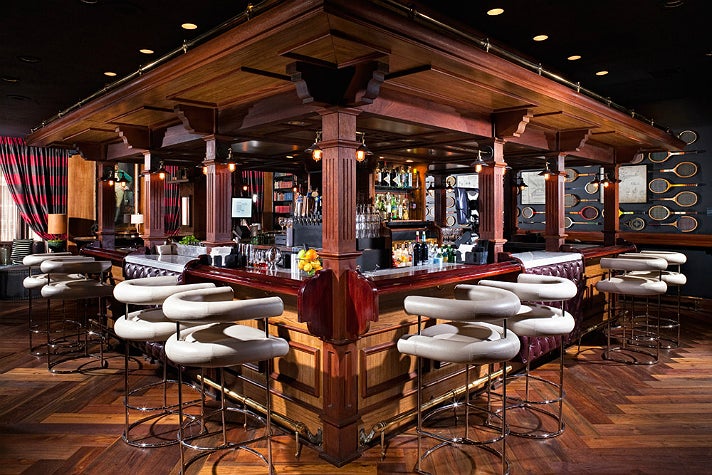
The Los Angeles Athletic Club is still a members-only establishment, but you can find out what it’s like to be a member by staying overnight in one of its boutique hotel rooms. Hotel guests receive limited membership privileges during their stay – like access to the athletic club, barbershop, spa, and some of the dining and drinks establishments. Some areas are still reserved strictly for dues-paying members, and others for an even more elite class: referring members.
Heart of Downtown L.A.
But a stay at the LAAC Hotel – even without access to mysterious passageways and secret handshakes – is worth it not only for the history, but the location in the heart of Downtown L.A. The LAAC is situated just outside the Historic Core and adjacent to the Jewelry District and the Broadway Historic Theater District. You can simply cross the street for a big band show and spectacular supper club experience at The Cicada Club in the historic Oviatt Building. Around the corner, you’ll find fine dining and cocktail establishments like Bottega Louie, Mas Malo and Seven Grand.
Although the LAAC Hotel building is more than 100 years old, periodic renovations over the years have helped it stay with the times, including a major renovation in the early 1950s. It is currently undergoing a multi-million dollar modernization that is scheduled to complete in early 2016, though many of the new (and improved) features have already been unveiled to its members and guests.
The LAAC wasn’t just a club for sport. Its founding members were really serious about dispelling the stereotypes of “lazy” Californians: they were going to use rigorous physical activity to develop a “superior race.” In its mission of amateur athletic sponsorship, the LAAC became the training headquarters for multiple Olympians who have collectively won nearly 100 medals over the years.
Competitors in squash, handball, fencing, and volleyball have all been a part of the LAAC legacy – including women, who have been included in the club since 1914. It was also the first private club in L.A. to not discriminate – and years before the law required it. Other clubs, lagged way behind: the Jonathan Club, for instance, didn’t relax their policies until the 1980s.
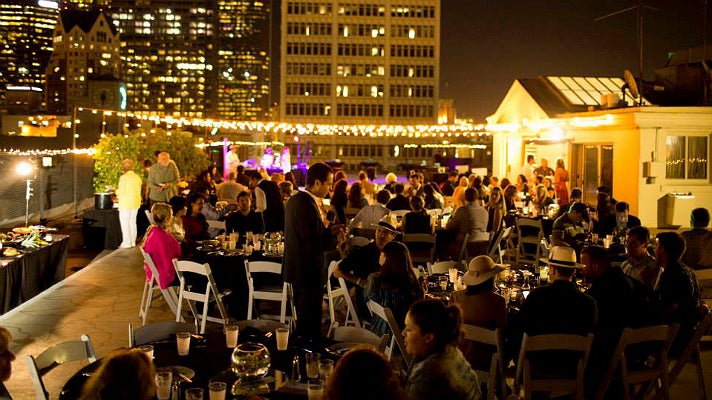
Designed by the same architect as the Los Angeles Memorial Coliseum (formerly known as the Olympic Stadium), the Los Angeles Athletic Club focuses on the bodies of its members (and hotel guests) as well as their minds and spirits. From the beginning, the Los Angeles Athletic Club was designed to be a second home for its members. Perks currently include invitations to members-only events, access to private bars and restaurants, access to all athletic facilities and group fitness classes, and reciprocal privileges with its network of other clubs, which includes the La Cañada Flintridge County Club and California Yacht Club in Marina del Rey.
Club-Themed Suites
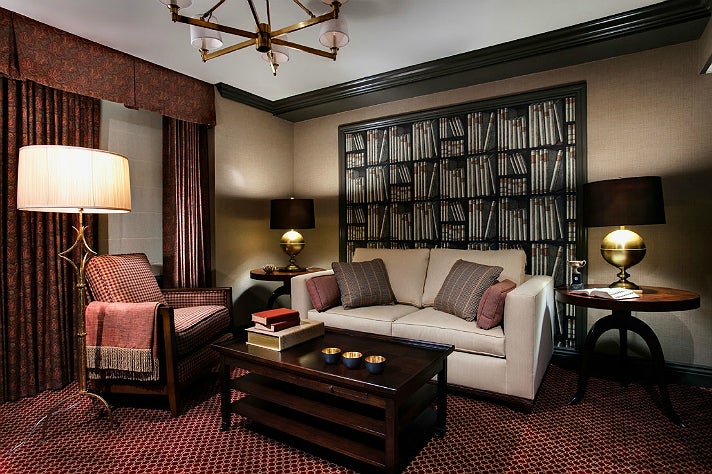
The LAAC hotel offers deluxe Queen- and King-sized rooms, as well as a total of nine different Club-themed Suites, each with one bedroom: The Country Club, Yacht Club, Trojan Club, Bruin Club, Beach Club, Athletic Club, Racquet Club, Social Club and Polo Club. Unfortunately they can’t guarantee you’ll get it, but you can try requesting your favorite while booking.
Sports & Fitness Facilities
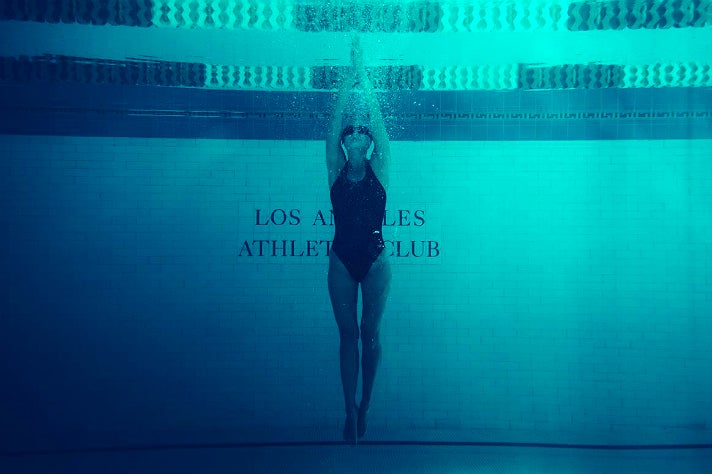
When it was built, the Los Angeles Athletic Club building had the unusual distinction of being the first in Southern California to have an upstairs swimming pool. The pool is one of its most popular attractions, thanks to a couple episodes of Mad Men that were filmed there. Olympic athletes have actually practiced in the Olympic-sized pool.
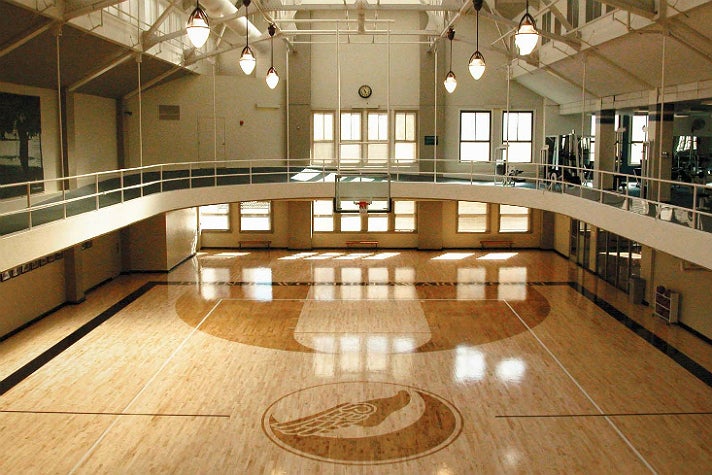
The athletic facilities are the one area of LAAC that don’t make you feel like you’re stepping back in time. You can take yoga, pilates, and kickboxing classes, or shoot some hoops in the gleaming basketball court. The nearly 90,000 square foot fitness facility also features renowned racquetball, squash, and handball courts, and a snack bar to fuel up before or after your workout.
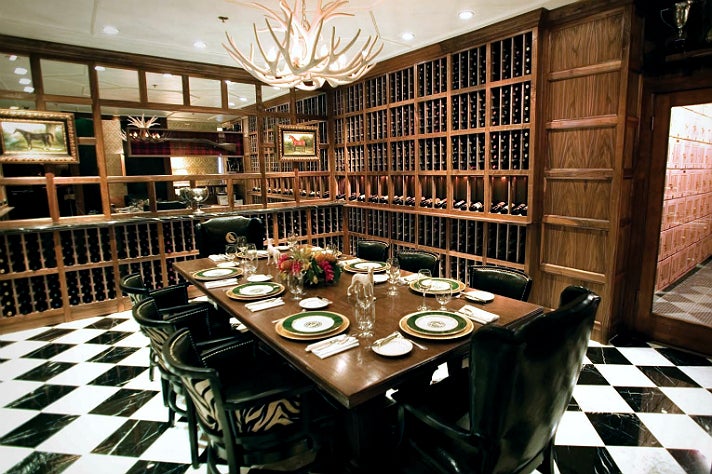
While you’re staying at the hotel, you’ll receive a complimentary full breakfast buffet in the Famous Players restaurant, replete with bacon, eggs, hash browns, bread, fruit, juice, and coffee. The bistro is also open for no-host lunch, where guests can partake of a salad bar or a full lunch menu.
For dinner, you can reserve the Trophy Room for private dining, or enjoy a nightcap at the Invention Bar, an establishment that dates back before Prohibition and is one of the oldest bars in L.A.
Blue Room
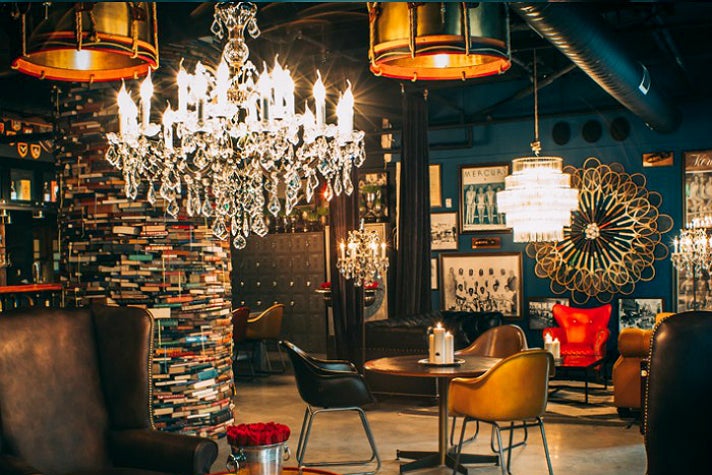
Members will soon be able to access one of the most exclusive speakeasies to ever grace Los Angeles: the Blue Room at Los Angeles Athletic Club. Currently open only for private events, the Blue Room is a reimagining of one of the club’s most popular spaces, actually used during Prohibition. The entry was closed off for decades, until LAAC employees uncovered the hidden stairwell, and now – if you can find the camouflaged door behind a bookcase – you can climb up to the historic watering hole.
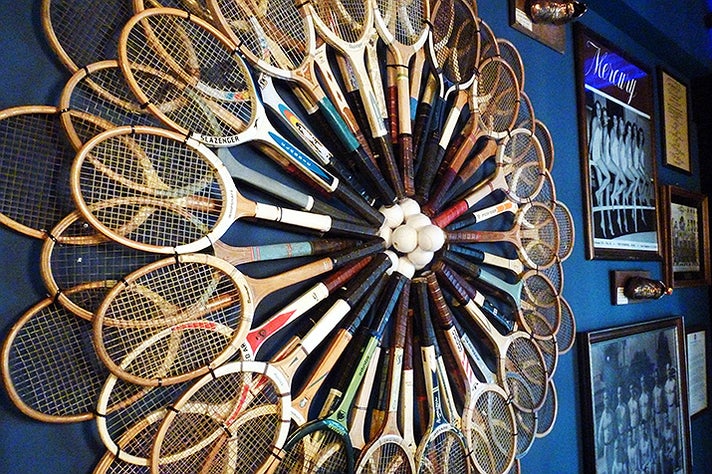
Featuring British-inspired furnishings by Timothy Oulton, the Blue Room incorporates antique books, canes, hockey sticks, tennis racquets, and even violins alongside historic photographs and vintage-style lighting. Custom cocktails designed by bar consulting firm Liquid Assets (Bow & Truss, 1886) will be poured for referring members soon. The Blue Room is not currently open to hotel guests, but that may change once they get up and running.
Recent changes like the addition of the Blue Room are likely to attract the younger crowd looking for post-work libations in the Financial District – particularly those wannabe Don Drapers who aspire to a style of socializing and imbibing from an entirely different era. Membership has its privileges.




